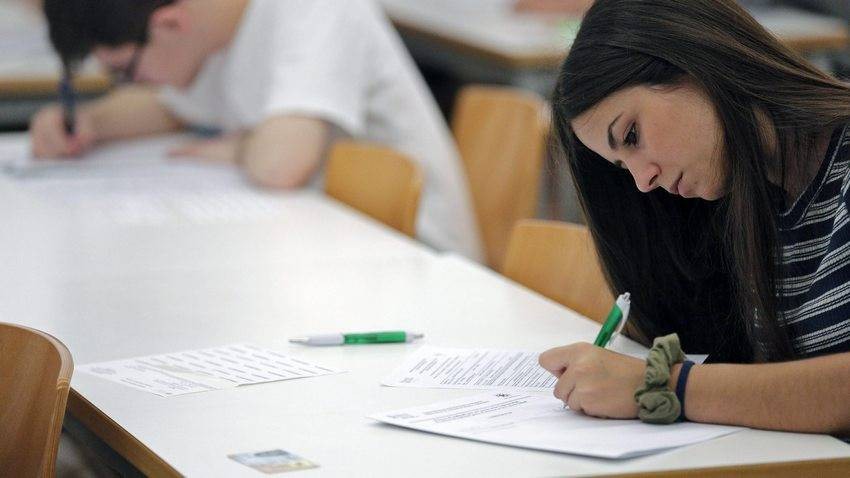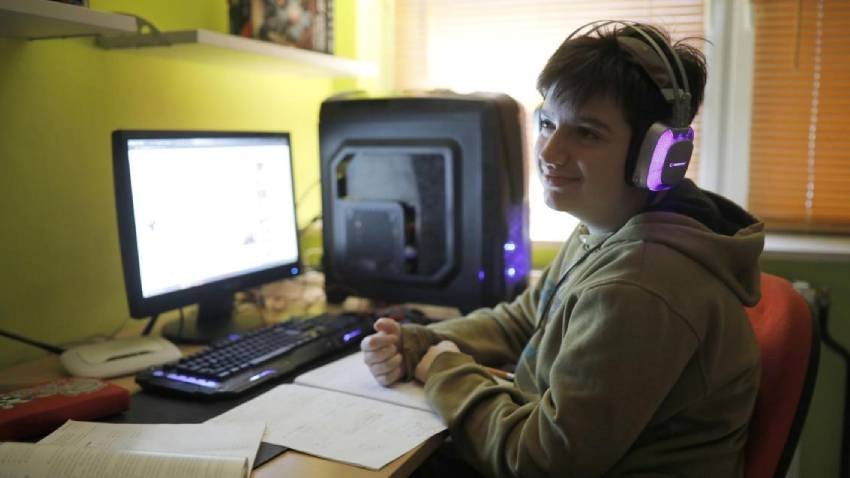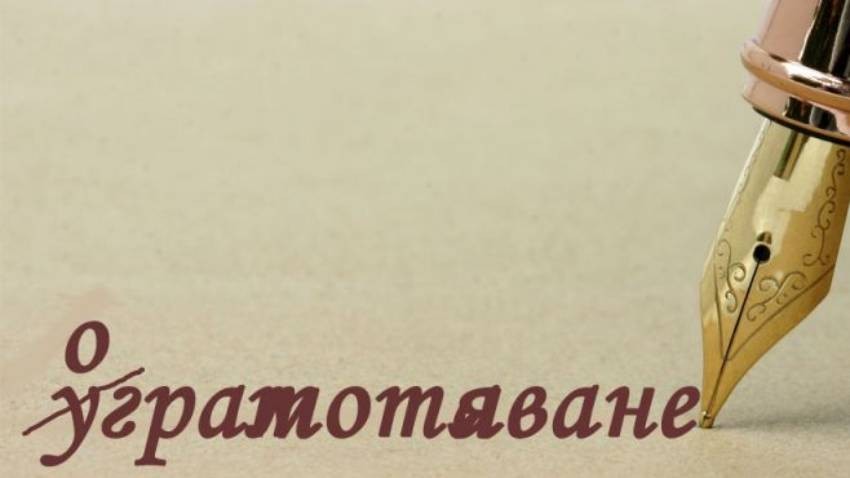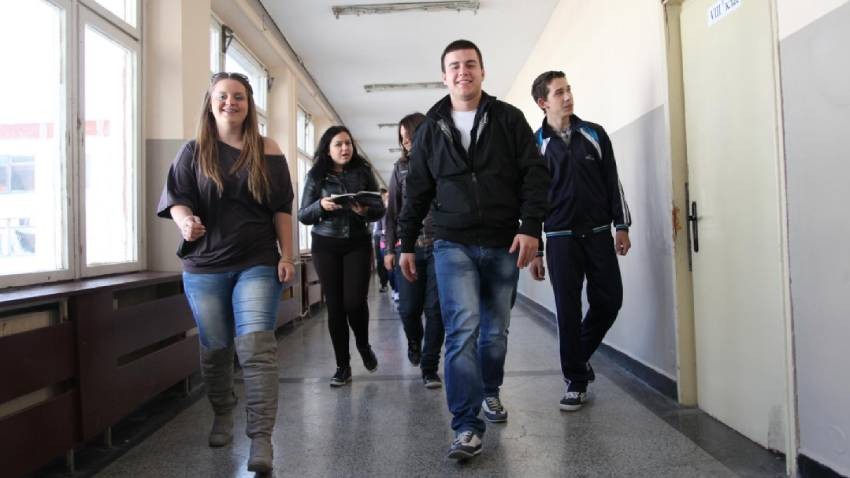On the threshold of the new school year in Bulgaria, September 15, and days after the world celebrated the International Literacy Day on September 8 for the 57th year in a row, the question of the importance of words on our life comes to the fore.
According to UN data, about 780 million people, or one in five people in the world, do not have even minimal language literacy, 75 million children do not attend school, and many more do not regularly attend classes or drop out of the education system. The latest report of the International Commission on Education and UNICEF, entitled "How well are children and young people keeping up with the development of skills?", has reminded us of the deepening crisis in education.
According to the report results, in Bulgaria 48% of youth between the age of 15 and 24 do not have the basic skills necessary for secondary education. According to Eurostat, for 2021, 14% of the young people in Bulgaria are outside the employment, education or training systems.

A study by the Ministry of Education for the same year adds that 120,000 children of school age are at risk of dropping out of the education system. The aging generation of teachers in Bulgaria is increasingly difficult to reach the children of the digital age, and theoretical knowledge in the classroom is still far from the necessary skills for the real life of the 21st century. And despite the daily use of digital media and content, the general intellectual picture of recent decades in Bulgaria continues to look gloomy.
Does politics have anything to do with our ability to express ourselves correctly and is literacy a generational problem - our colleagues from Radio Vidin asked the Bulgarian language expert Dr. Pavlina Varbanova, creator of the "How to write" online platform, which has been helping people for ten years now:

"I think today our level of literacy has become more visible, thanks to the Internet and the ability for everyone to freely publish their content. Of course, it can be a video, but we often publish written content as well, and it is there that it becomes clear what the degree of our literacy is, how much we have mastered the code of written communication."
Each period of human history leaves an imprint on our language and literacy. That is why Dr. Varbanova is positive that modern vocabulary changes very quickly and is influenced by political events in Bulgaria and around the world. The bad thing is that the language culture of politicians is also gradually declining, which inevitably has its impact on society.

"I, as a specialist, would allow myself to say that the Bulgarian spelling and punctuation rules are sufficiently complicated. Here I mean all those rules, sub-rules, exceptions, subtleties that almost only specialists - editors, proofreaders, and I hope journalists master, too. I especially wish that people who do not deal professionally with the written word should still have a relatively high or at least a decent level of literacy and should pay attention to avoid the gross spelling mistakes they make. It is attainable and depends only on a person's desire."
There is nothing wrong with slang expressions and foreign words that have entered the vocabulary of young Bulgarians, says Dr. Pavlina Varbanova. They are unavoidable in a time living in a free and open world. "The trouble comes when these same young people have to communicate in another speech situation and it becomes clear that they do not have the sufficient linguistic capacity to do so. Then we can already think and talk about deficits in language learning," she is convinced. And she admits that part of the main roots of the literacy "problem" lie in the country's education system.

"It's as if we have placed at the basis of education some theoretical propositions that have little to do with modern language needs. The purpose of learning Bulgarian is to give a systematic, clear, theoretical idea of the Bulgarian language as a whole. Efforts are not directed towards the main thing that a person should be able to do after completing secondary education - to express themselves decently in their native language, to express themselves adequately, to be able to switch between linguistic codes, because when young people speak with their peers they communicate in one way, but when they communicate with institutions or when they have to write some document it is different. Bulgarian language training should be directed towards these more practical aspects. I also state this in my capacity as a textbook author. I have a very good idea of what the Ministry of Education and Science puts into the curricula. Within the framework given to us, my colleagues and I try to be as useful as possible to the students, so that they also derive practical benefits, to form enough skills and attitudes to use their native language practically".
Language is part of the cultural and national identity of each one of us. The foundation on which everything else is built. "The striving for a higher language culture is part of the self-respect of a modern person," adds Dr. Varbanova. And a true, free civil society is composed of only free and self-respecting individuals.
Compiled by Vessela Krasteva
English version Rositsa Petkova
Photos: unicef.bg EPA/BGNES, library
For the 32nd time, the Children's Easter Festival will bring together Bulgarian children from different countries in Bosilegrad, Serbia, giving them a chance not only to showcase their skills in crafting the most beautiful and original Easter eggs but..
Since its establishment on April 11, 2022, the Institute for Computer Science, Artificial Intelligence and Technology – INSAIT has achieved a number of successes and continues to position Bulgaria on the world's technological map...
Shortly after the opening of the motorcycle season in Sofia at the end of March, Bulgaria's capital city will host the country's largest motorcycle exhibition . The event takes place from today until April 14 at Arena 8888 Sofia . Between 700 and..
The Speaker of the National Assembly Natalia Kiselova will today award the winners of the 32nd Children's Easter Festival in the Serbian town of..
Sugar artist Mariya Ozturk's latest masterpiece - a model of St Peter's Basilica in Rome - prompted us to reach out to our fellow Bulgarian during the..
A colorful Easter celebration under the slogan “Let’s sing and dance on Easter, on the square” will take place today in the open air in the town of Stara..

+359 2 9336 661
